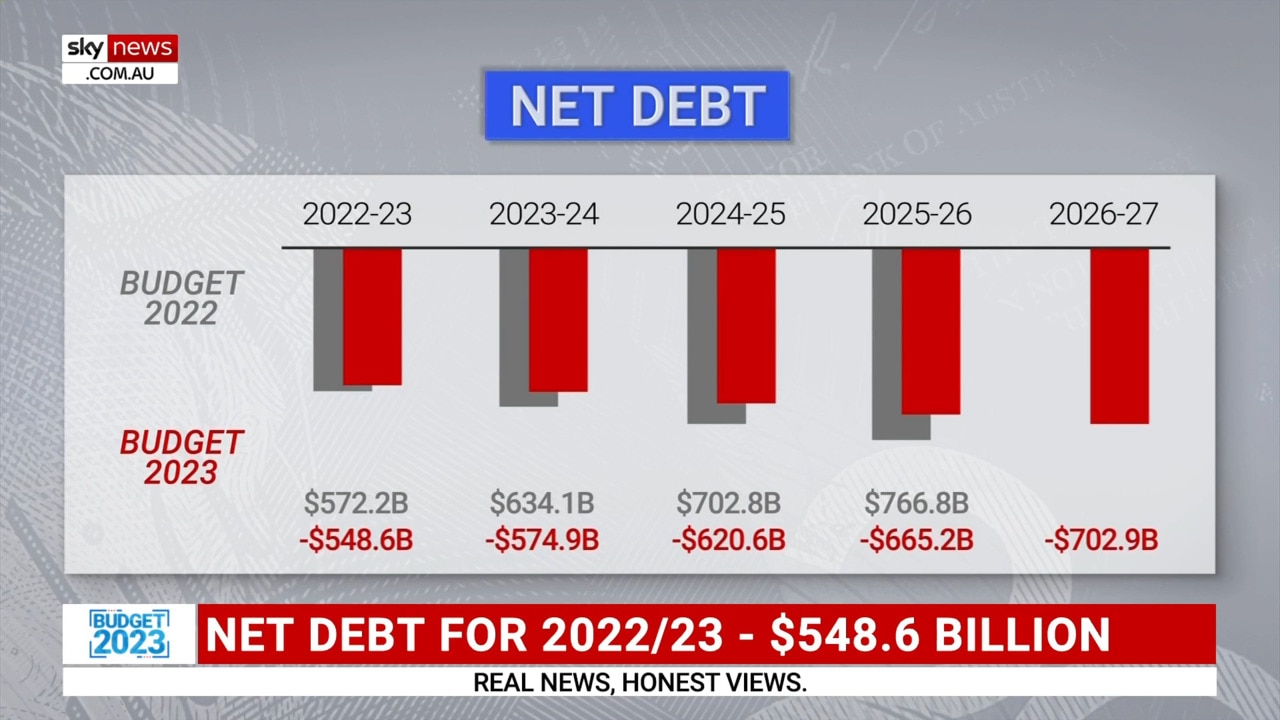Federal Budget: Multinational tax crackdown to commence from January 1
Digital giants such as Facebook, Google and Amazon will be required to pay a tax in Australia as a minimum tax rate from 2024 as a groundbreaking tax treaty takes effect.

Business
Don't miss out on the headlines from Business. Followed categories will be added to My News.
Hundreds of multinational businesses will deliver a $400m boost to government coffers as part of new anti-tax measures to take effect from the new year.
Digital giants such as Facebook, Google and Amazon will be required to pay tax in the countries where their goods or services are sold, even when they have no physical presence there.
The government’s implementation of pillar two of the OECD/G20 multilateral agreement on global tax is part of a worldwide shake-up of company tax involving more than 135 countries.
The minimum tax rate would apply to multinational companies with revenue of more than €750m ($1.20bn), with the OECD forecasting “Pillar Two” taxation reforms to deliver a $US220bn boost to the 135-plus countries’ collective coffers.
It is estimated to increase Australian tax receipts by $370m over the five years from 2022–23 when it takes effect from January 1.
The government said the rules looked to address the global ‘race to the bottom’ on corporate taxes by introducing a global minimum effective tax rate of 15 per cent.
“The revenue gain over the medium term will be dependent on the response of other jurisdictions in implementing these rules, their own domestic minimum taxes, and behavioural responses by multinational groups,” the budget said.
It won’t apply to investment funds, pension funds, government entities, international organisations, not-for-profit organisations, and income associated with international shipping.
The global agreement was brokered by the OECD in October 2021 — shortly after former finance minister Mathias Cormann took over as the body’s secretary-general.

Under that deal, signatories pledged not to lower their company tax rate below 15 per cent, putting a floor under potentially damaging tax competition.
Australian firms are not expected to pay a significant amount of top-up tax due to the high corporate tax rate.
The government said that the global tax treaty would overtime make Australia a more attractive place to invest, boosting economic growth and tax revenue.
“It will also support Australian domestic businesses, by decreasing some of the tax advantages that are available to large multinationals,” the budget said.
Australia’s domestic minimum tax and Income Inclusion Rule will apply to income years commencing on or after January 1 2024, while the Undertaxed Profits Rule will apply to income years commencing on or after January 1 2025.
If the Australian entity is a subsidiary of a foreign parent, Australia can only collect the top-up tax if the foreign parent’s jurisdiction has not implemented an Income Inclusion Rule.
Originally published as Federal Budget: Multinational tax crackdown to commence from January 1





